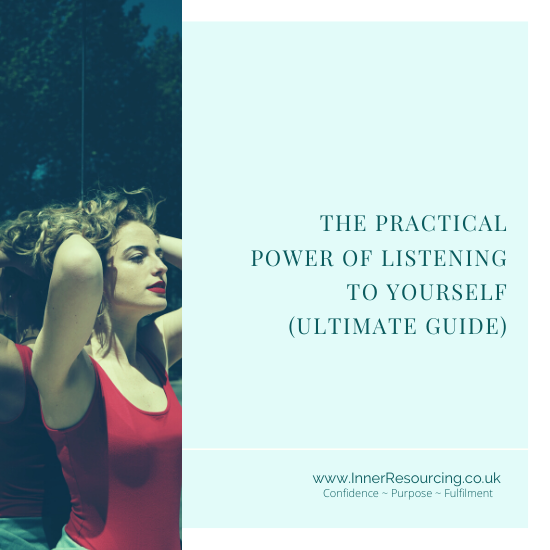23 Proven Journal Prompts to Unlock Your Career Change Success
Looking for ways to think about your career and where you might go next with it? Whether you’re a seasoned journal writer or just trying it out, this article will help you get started. Or alternatively, you could use the prompts as questions to meditate on.
So read on for career-coach-tested journaling prompts and reflective writing exercises to help you explore career change and what you want in life.
Contemplating career change?
The days when we stayed in the same career for our whole lives are long gone.
That’s partly an economic reality. But it’s also, I believe, because women over 50 in particular are looking for more career fulfilment.
Post 50, careers used to be about winding down to retirement. But no longer.
According to Mika Brzezinski, writing in Forbes, “Women over 50 are accomplishing phenomenal things“
We’re no longer settling for being unfulfilled at work
Most of my clients are in their late 40s or 50s, and are fed up being unfulfilled and frustrated at work. But at 50, they don’t feel they have loads of time to mess about trying out different things. (Which is why you might be reading this in the first place.)
Fortunately, there are quite a few methods we use to help them get clear about who they are and what they want as regards work. So they too can do phenomenal things!
But not everyone wanting to transition to a career where they feel fulfilled is ready to commit to one-to-one career coaching.
How journaling can help you with the career transition process
Outside of coaching, journaling is a great way to capture your thoughts, reflect on your choices, and explore your options.
Journaling can help you:
- remember who you are, as you record your thoughts and feelings without needing to moderate or “sanitise” them for other people
- reflect on your skills, talents, and expertise – when you write about your strong points, you both deepen your understanding of them, and, take ownership of them
- reframe your experience – writing can help you spot recurring themes and get perspective on difficulties
- feel calmer and more grounded – research shows that journaling about your life can reduce distress and improve mental health
- develop ideas and be creative – writing ideas and plans down helps make them more real
- make decision-making easier – when you see your options written down – all out on the table, so to speak – it’s easier to sense where your energy is going. Plus you can often spot connections you didn’t notice before.
- deal with overwhelming feelings or situations (for example regarding redundancy, job cuts, unpleasant bosses, or difficult clients) – journaling about them can help you get some distance and improve your ability to leave work at work
- practice gratitude and appreciation – Gratitude Journals are perhaps one of the most well known types of journal. When it comes to career change, appreciating positive traits, previous experience, skills, resources etc, through journaling about them, can help boost confidence and mood.
Sometimes it’s hard to know where to start, though.
Especially when you’re confused, at a career crossroads, or up to your neck in stress and overwhelm at work. Or this kind of process isn’t one you’re used to.
So below I’m sharing some of my favourite prompts/questions/inquiries that I give clients, and which you can use to kick start your thinking and journalling about career change.
Using prompts is an excellent approach, whether you’re a beginner, or a seasoned journaller. And whether you find writing easy or hard. (If you find it easy, prompts can keep you focused on the topic you want to explore.)
Try playing with the prompts below.
You may even soon find you can come up with your own prompts for journalling about career change or career development.
By the way, if you’re finding it hard to get started with journalling at all – perhaps you keep getting stuck with a blank page and no words coming – check out this helpful article of mine: 8+ Tested Tips For Easier Journalling about Your Career
A vital key to journalling that everyone needs to think about
Protect your journal – do not leave it lying around for anyone and everyone to peer into – because they will.

OK maybe sealing it in a stone vault with a reinforced oak door is going a bit far. But if you’re going to put your innermost thoughts and feelings down on paper, it’s important to know that they are for your eyes only.
You may feel that journalling online makes it more secure. Personally I believe in the power of moving your hand across the paper, but it’s up to you. Just use something you have access to everywhere you go, like Google Docs, or Evernote.
My regular posts on LinkedIn (find them here) have become, for me, a way of journalling about my work and the topics my clients are interested in. (Treating it as a reflective practice is the only way I have found to keep myself posting regularly!)
But I don’t post loads of personal stuff on there. For example how I’m feeling day to day, or notes on my Focusing practice. (I don’t mean I don’t share real life stuff with my social media audience because I do, but not everything.)
Journaling, like any other kind of self-exploration tool, needs to feel like it’s a safe space. Just you and the page.
So with all of that said – let’s get on to the juicy stuff
23+ prompts to help you think about career change and what it means to you.
I recommend setting aside a regular time every day to pick one journal prompt and write from it.
What I mean by that is to use the prompt as a jumping off point for your exploration, rather than seeing it as a question you’ve already got an answer to.
Be curious and enjoy discovering what you think.
Journal Prompts for Career Changers
- If I could do anything at all for a job it would be …
- The things I love about my current role are…
- What gets me down about my current role is …
- The things I’d most like to learn more about are …
- In my ideal job I would be …
- My idea of the job from hell is …
- When I am frustrated at work I …
- I feel most fulfilled when I am …
- When I think about changing career I feel …
- When I imagine having successfully changed career to where I want to be, I feel …
- When it comes to my desired career, my role models are … because …
- If I won the lottery tonight, by this time next year I would …
- If I had 10% more self-belief, I would …
- What do I want permission to become? I want permission to …
Prompts specifically for those facing redundancy or job loss
- The best things about redundancy are …
- The hardest parts of redundancy are …
- My support network and how they might help me…
- What I really want to say to my boss(es)/manager(s) is …
- The most important things I’ve learned from the experience of job loss are …
- What being made redundant doesn’t say about me …
- The things I appreciate about how this experience has been handled are …
- What I need to create closure and move on from redundancy …

Enjoying this article?
Read next: The Practical Power of Listening to Yourself (Ultimate Guide)
What about if you want to be more fulfilled at work, but aren’t ready for career change?
Check out this article, which also contains many more insightful questions and prompts for journalling about your career…
“How to feel more fulfilled at work without changing career – exploring the 4 shifts“
Role play prompts
- Imagine yourself aged 95. You are sitting in your comfiest chair, by a sunny window, thinking back over a long life and a successful and varied work-life. What is the best advice 95-year-old you could give to the you that you are now, regarding changing career …
- Go back in your mind to being 10 years old. Recall the things you loved to do, and the dreams you had for your life. 10 year old you has some important things to tell you about how you’re living your life now. They are …

Extended Writing prompts
- When we are young we often hear stories about ourselves that come to colour how we see ourselves. For example, in my family, I was the one who was good at creative writing, while my sister was good at languages. Write down some of the stories you were given about yourself when you were young
- Write about what your parents or other significant adults did for a living and relate it to what you do now. Look for similarities and differences. Is there anything about what they did for a living that appeals to you, or repels you? Write about that.
- Explore your stories. We all carry stories around with us all the time. Some of these are empowering and help you take big life steps like starting your own business, or trading a corporate career for a one in teaching or coaching. Some are disempowering. By making them explicit you can decide which ones you want to keep and which ones you should keep an ear/eye out for.
So make two lists: one of ALL of the stories you know of what women should be, do, or have in relation to work. And another of all that they shouldn’t.
It might help to separate them into categories. Like: All the things my mother told me women should/shouldn’t be, do, or have. All the things the media tells me … all the things my school friends believed… all the things I think.
Then highlight half a dozen that seem especially empowering for where you are now in your career transition journey.
(….Further steps… journal about each one of these in turn.)
Next Steps
If you found this article useful, here are some suggestions as to what to do next:
- Journaling is a great way of listening to yourself – something we often don’t do enough of in today’s ultra-busy world. Next, read this article about the 4 Levels of Listening to Yourself
- Want more career journal prompts? This article about the 4 shifts for more fulfilment at work has some useful self-reflection questions and prompts.
- Ready to talk, and get exquisite listening help to move you forward with career change? Check out ways of working with me here…
- Share this article with others you think might find it useful (share buttons below)
